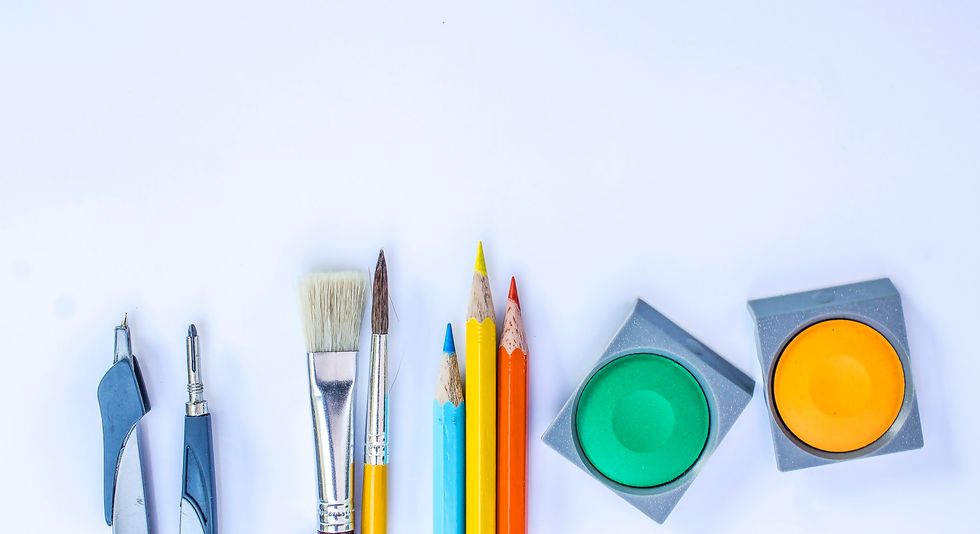It was only a year ago that I participated in my first play, but I have been in performing arts classes for a long time. I attend Longleaf School of the Arts, a college preparatory high school with a fine arts focus, and there I have studied choir and theatre. As an academically-focused student, my parents worried that my academics might be too challenging alongside difficult, strenuous arts courses. It was definitely a challenge; having to go from taking notes in biology to performing a monologue in front of thirty peers was no small feat, but I wouldn’t have it any other way.
Because, for me, the performing arts made my life at school better. They taught me confidence, mental agility, dedication, and perseverance. Going to Longleaf for high school was the smartest decision I ever made.
So let me ask you this: why isn’t every school like Longleaf? Why do so many schools have under-funded arts programs and sub-par teachers? Why is self-expression put on the backburner while grades in math and science are hailed as a student’s only possible measure of intelligence?
Hear me when I say this: an arts-based education is every bit as valuable as an academics-based education.
And a school that does both at the same time, without letting either side suffer? That’s about as good as it gets.
But why are the arts so important?
Well, here are some statistics.
- A 2004 study in Toronto, Michigan showed that kids who are involved in music classes showed increased IQs, while kids who were involved in drama classes had increased social skills.
- Prison fine arts programs have been proven to improve the motivation, life skills, self-worth, and emotional regulation skills of incarcerated criminals. Prisoners who engage in fine arts programs are, as a whole, less aggressive and cause less disciplinary issues than prisoners who do not.
- The YouthARTS Development Project found that at-risk youth who engaged in an arts curriculum had better social skills, improved self-esteem, felt more positively towards school, and had fewer court referrals.
But the value in an arts education cannot be limited to measurable studies such as these. The value of an arts education is often the unseen. Students who find themselves struggling academically can turn to the arts and find solace. Students who want to use their imagination turn to the arts, and they learn how to make their academic life as beautiful and creative as their artistic life. Students who want to break out of their shell turn to the arts, and they find themselves within a safe, warm-hearted community who will allow them to make mistakes without the consequence of being harshly judged.
Students who turn to the arts improve their lives. And you can trust me on this, because mine did.
I went into theatre so I could learn to deal with my anxiety. It didn’t work out exactly how I had thought it would. But, I started the process of learning to be comfortable with failure and humiliation. I learned how to be safely embarrassed. I learned how to be confident in myself.
Choir taught me the value of working with others. It showed me the value of being a team player much the same way any sports team would have. Because we were a team, and we were working towards a common goal.
There are a hundred stories of kids at my school whose arts education has changed their lives. I really hope that there will be a hundred more.
But let’s face it: arts programs at our public schools are dying. Funding is reducing every year by unimaginable amounts. And every year, students who find themselves struggling academically have fewer alternatives to negative behaviors like doing drugs, smoking, or drinking alcohol. The arts programs at every school are crucial for these kids. And, they are crucial for students like me, who might not be struggling academically but still need that daily self-expression.
If we let our arts programs suffer, then our students will suffer.
If you ever find yourself wondering, as a teacher or a parent or an administrator, what the missing piece is — why the students are failing, why attendance is lower, why your kid refuses to go to school and take their midterms — the arts are the missing piece. An arts education may not fix every problem a school may face, but it will give kids back their excitement for school, their hope for a future, their purpose.
If you give a student an arts education, you will open doors for them. And most importantly, they will open doors for themselves.
I don’t know who I would be if I went to a public high school, but I know I wouldn’t be here, now, writing this article. I would never be confident enough to publish a piece every other week. I wouldn’t have enough faith in myself to follow through with the arts in my free time. Hell, the arts wouldn’t even be on my radar. And I would be a lesser person for it.
So please, make the arts a priority. Make our students a priority.
Creativity changes lives. Pass it on.






 The minimum wage is not a living wage.
StableDiffusion
The minimum wage is not a living wage.
StableDiffusion
 influential nations
StableDiffusion
influential nations
StableDiffusion












